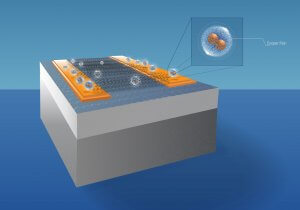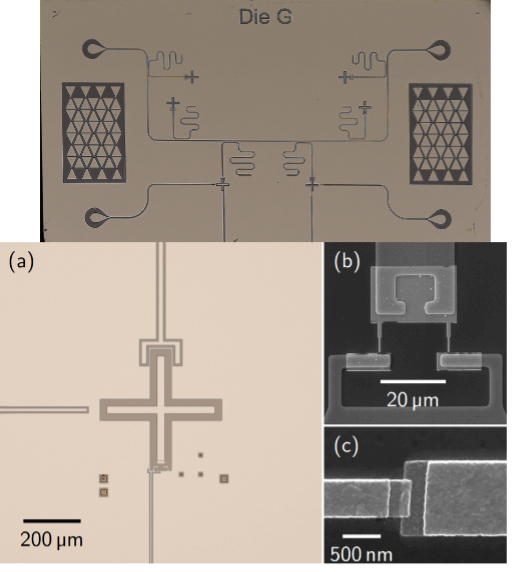Summary
The superconducting quantum computing architecture has seen rapid improvements over the last two decades. However, the coherence time of superconducting qubits is limited by unknown noise sources presumably existent at the interface between the insulator and the superconducting film. Carbon nanotubes (CNTs) are a promising material for use in Josephson-Junctions (JJs) given their unique properties, such as high electrical conductivity, pristine surface, inherent nanoscale dimension, and silicon-compatible processing. In this project, we are building gate-controlled JJs composed of CNT thin films (down-to-monolayer) positioned between two superconducting electrodes to act as a promising superconducting qubit for quantum computers. Aside from gate-controllability, this approach offers superb interface engineering capability, small integration footprint, and high-temperature operation. We expect the CNT film – JJ superconducting qubit will achieve superior performance relative to current state-of-the-art JJs and enable the development of scalable superconducting computation with extensions to arrays of CNT-JJs coupled to microwave and optical photon-waveguides.

Figure 1. Cooper pairs interacting with gate-controlled Jospehson-Junctions composed of CNT thin films
Related Content

Next Generation Quantum Sensors
We are developing new semiconductor p-n junctions and designing novel nanowire arrays that have the potential to significantly enhance the ability to detect light at the single photon level over an unprecedented wavelength range from the ultraviolet to infrared.
June 1, 2017

Building Blocks for Quantum Neuromorphic Computing: Superconducting Quantum Memcapacitors
Quantum neuromorphic computing (QNC) is a novel method that combines quantum computing with brain-inspired neuromorphic computing. Neuromorphic computing performs computations using a complex ensemble of artificial neurons and synapses (i.e., electrical circuits) to emulate the human brain. QNC may lead to a quantum advantage by realizing these components with quantum memory elements, or memelements, which […]
June 12, 2023

Developing Tools for Quantum Characterization and Validation
Summary Coherence is essential for quantum computation; yet it introduces a unique sensitivity to any imperfections in hardware design, control systems, and the operating environment. Overcoming these sensitivities requires a hierarchy of strategies, ranging from optimization of the hardware architecture to software solutions including quantum error correction. Randomized Benchmarking Protocols are an important family of […]
October 3, 2017

Entangled Photon Orbital Angular Momentum Arrays
Summary Arrays of orbital angular momentum (OAM) states of light are a new form of structured light so far relatively unexplored in quantum information science. Unlike spin angular momentum of light, which is related to light’s polarization and covers two dimensions, OAM states, sometimes described as ‘donut beams’ due to the shape of the field […]
September 19, 2019

